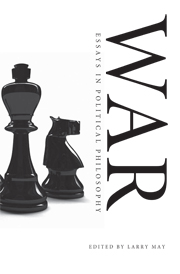12 - War's Aftermath: The Challenges of Reconciliation
Published online by Cambridge University Press: 05 June 2012
Summary
Philosophical reflection on war has not, for the most part, paid attention to the aftermath of war. Its themes have been the justifiability of resorting to war and of various means of waging it. Themes of civil disobedience, resistance, and responsibility for crimes of war have also received attention. But these considerations leave the context of aftermath largely untreated, neglecting the fact that wars do somehow end and significant problems remain when they do. In this chapter it is not possible to treat all such problems. Included here are descriptions of the centrality of social trust, the contrast between judicial and truth commission approaches to reconciliation, amnesty, and the roles of victims and perpetrators.
Reconciliation and its dimensions have been a significant topic in philosophy and politics since the well-publicized hearings of the South African Truth and Reconciliation Commission (TRC) in the 1990s. The South African TRC was an institution in an aftermath – the aftermath of a struggle over apartheid. Fascinating questions about guilt, innocence, responsibility, justice, and forgiveness are posed by its work. Many of these questions concern relationships between persons and groups who had engaged in the struggle over apartheid. It is debatable whether South Africa's postapartheid circumstances amounted to the aftermath of war, although the struggle in the 1980s had been characterized by a high level of violence and was deemed by some to have amounted to a civil war.
- Type
- Chapter
- Information
- WarEssays in Political Philosophy, pp. 229 - 248Publisher: Cambridge University PressPrint publication year: 2008
- 2
- Cited by



